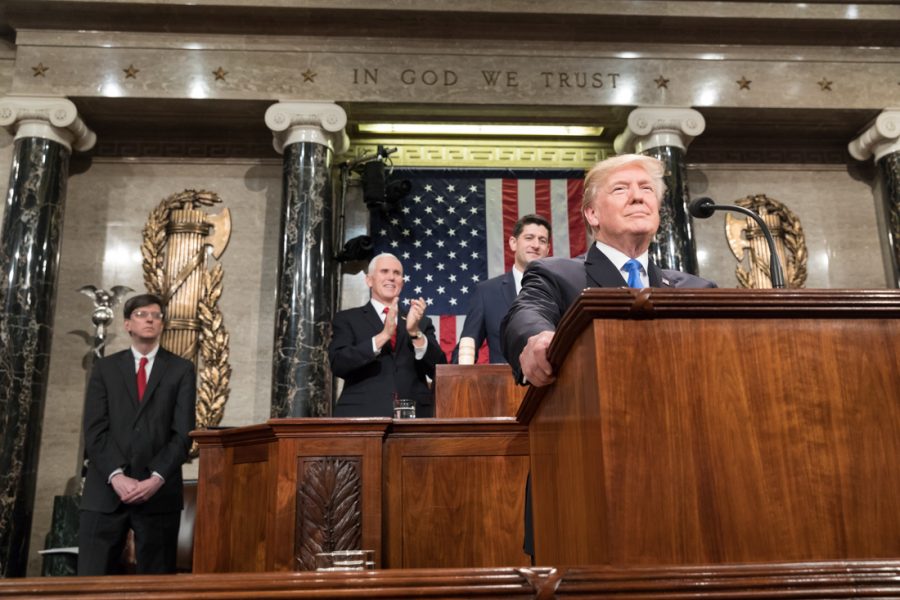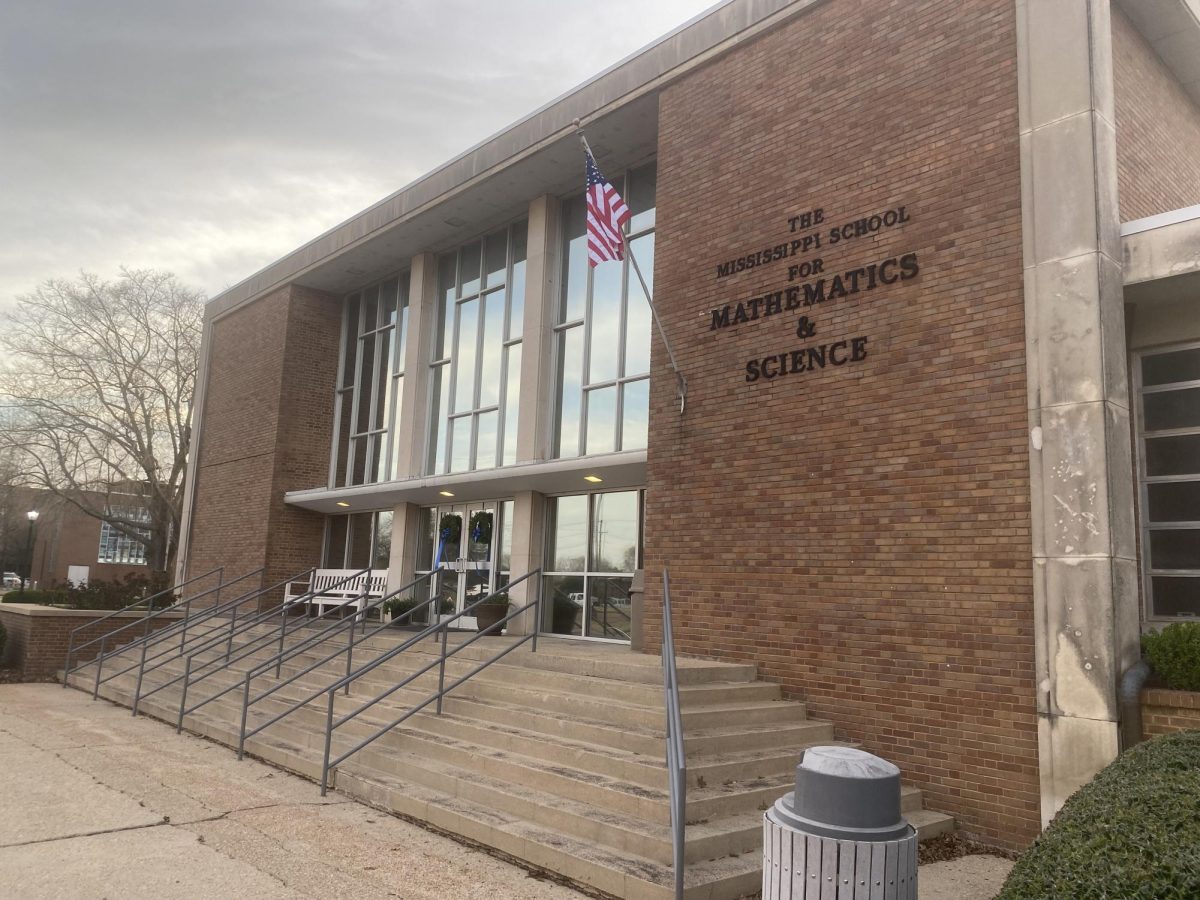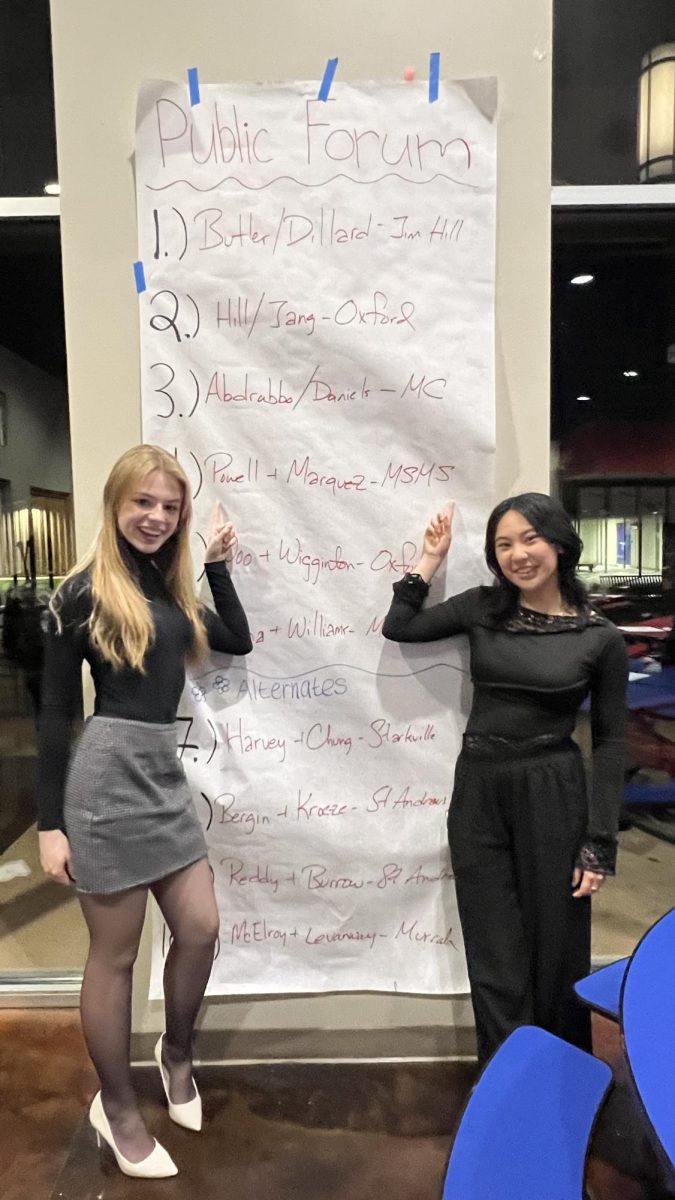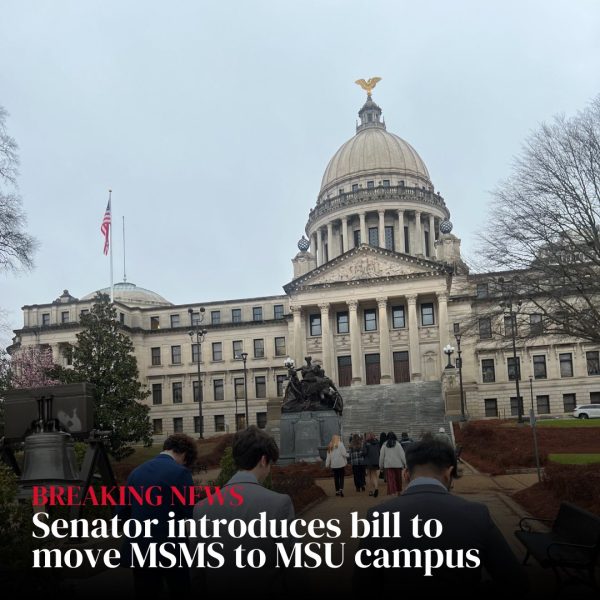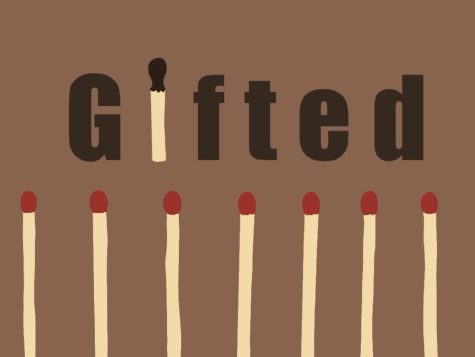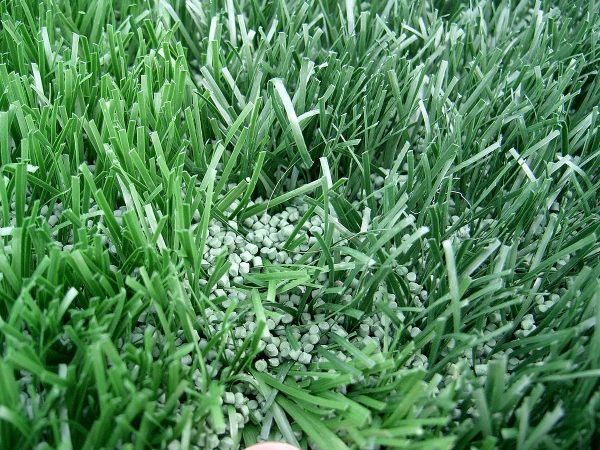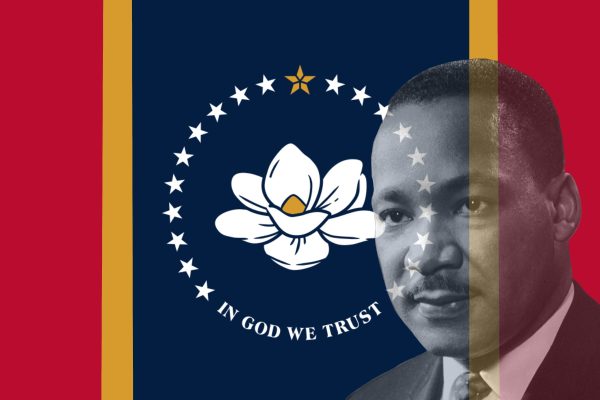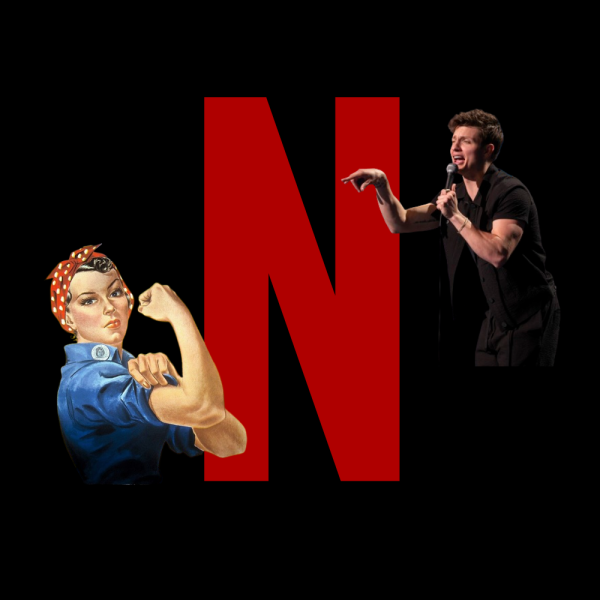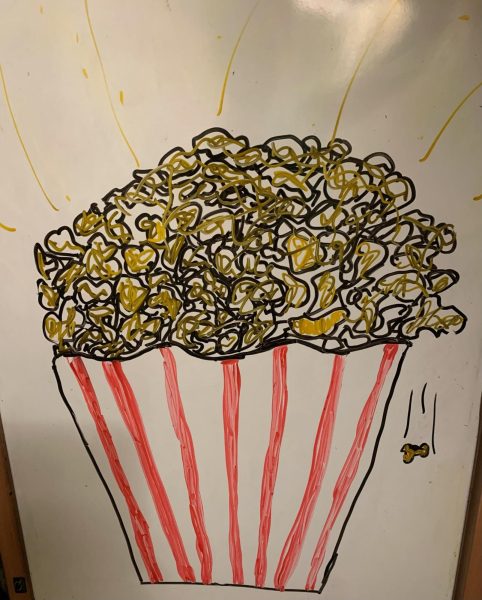Jira: State of the Union address exposes a congressional chasm
[public domain], via Wikimedia Commons
President Donald Trump speaks to a crowd full of people.
February 6, 2020
I bet Trump felt like a rock star when he walked down the aisle to the podium where he would deliver his third State of the Union address, the last of his term. A day after a laughably botched Iowa caucus, a day ahead of his acquittal in the Senate and with the voices of Republican senators and representatives chanting “four more years” at his back, Trump was high on life. I could almost see the wind flowing through his toupee and a cape shifting gently in the breeze behind him. The entire address was rife with political theatrics, from start to finish, and it was glorious to watch. But beneath it all—the stoic looks and a shredded speech—one thing becomes glaringly obvious: Capitol Hill is more divided than ever, and it’s only getting worse.
The first slight of the evening was delivered by House Speaker Nancy Pelosi when she introduced Trump to the Senate without the usual circumstance, dropping “high privilege and distinct honor” when announcing his presence to the chamber. Minutes later, Trump declined to shake Pelosi’s outstretched hand when he offered her a copy of his speech. The tension continued to build in the room for the next 80 minutes until the coup de grâce of the evening occurred when Pelosi, with the president standing mere feet in front of her and before the eyes of millions, tore her copy of Trump’s speech in half. The moment alone was epic, but the entire picture seems almost childish; it mirrors perfectly the political climate of Washington as a whole.
The entire speech was a victory lap—an exposition of Trump’s political prowess, how great he is at being president. So, as you can imagine, the entire speech was incredibly partisan. For Republicans, it was a night of revelry. They seemed to cheer after every sentence while the Democrats sat stoic in their seats, groaning at Trump’s grandstanding as he offered a right-wing radio host Rush Limbaugh, in what was a highly irregular move, a Presidential Medal of Freedom in the middle of his speech. And while the theatrics were certainly entertaining to watch, the repercussions of it certainly won’t be.
Such divisions aren’t beneficial for the American people. Over the last two decades, Congress has gotten less and less productive, which is no doubt due to the increasingly partisan nature of our legislative and executive branches. They are designed to work with each other, not against each other. Disagreement is to be expected, but to differ so as to come to a complete gridlock is unhealthy and detrimental to the integrity and effectiveness of America’s government.
The purpose of Trump’s speech was to address Congress and the nation, and if he were a better leader–a better person–it would have been a message of unity, rather than one that touted his triumphs over liberal policy and his success at rolling back the accomplishments of the Obama administration. If there is any merit or pride to be found in being a Democrat or a Republican, it’s getting increasingly harder to through the haze of resentment and bitterness.
In the Federalist papers, James Madison said, “In framing a government which is to be administered by men over men, the great difficulty is this: You must first enable the government to control the governed; and in the next place, oblige it to control itself.” Right now, America’s government is failing at both. When Trump walked down the aisle, he may have felt like a rock star, but I also hope he felt the rift. Not just the ever-widening one between Democrats and Republicans, but the one between Americans and ultimate prosperity.

